How to Write a Perfect Essay in English Like an Expert
 Writing the perfect essay in English may not be a walk in the park, but with determination, practice, and a touch of creativity, you can conquer it. As experienced professional writers, we’ve witnessed countless students struggle with essay writing. But fear not!
Writing the perfect essay in English may not be a walk in the park, but with determination, practice, and a touch of creativity, you can conquer it. As experienced professional writers, we’ve witnessed countless students struggle with essay writing. But fear not!
To kickstart your essay, it’s important to begin by brainstorming ideas and developing a clear, concise, and specific thesis statement. This lays the foundation for your essay. Then, dive into thorough research using reliable sources like books, academic journals, and reputable websites. Gather those nuggets of information that will support your arguments and give your essay that extra oomph. Just remember to cite your sources properly—academic integrity is key!
Once you have gathered your research, it’s time to get down to the nitty-gritty—writing the essay itself. The structure is your friend here. Starting by creating an outline is crucial as it helps structure your essay and ensures a logical flow of ideas. It acts as a roadmap for your writing journey.
When it’s time to put your thoughts into words, keep it clear and to the point. No need to get all fancy with complex language or convoluted sentences. Just be yourself and express your ideas in a way that everyone can understand. Remember, your professors are human too!
Make sure to communicate your ideas with clarity and precision, avoiding any unnecessary complexity. Edit and proofread your work to eliminate any errors or inconsistencies before submitting it.
Throughout the process, stay focused and open to revising your work. Sometimes, a fresh perspective can lead to significant improvements. Remember, clarity is key. Strive to convey your ideas in a straightforward and coherent manner.
Why is Writing a Perfect Essay Important?
Before we delve into the intricacies of essay writing, let’s understand why it holds immense significance for students:
- Academic Success: Essays are a fundamental part of your academic evaluation. Mastering the art of writing exceptional essays can significantly enhance your overall academic performance.
- Communication Skills: The ability to articulate your thoughts and ideas coherently through writing is a valuable skill that extends beyond the classroom. It prepares you for future professional endeavors and effective communication in various fields.
- Critical Thinking: Crafting an essay requires you to analyze, evaluate, and synthesize information. It nurtures your critical thinking abilities, enabling you to construct logical arguments supported by evidence.
What Makes an Essay Perfect?
Before we delve into the nitty-gritty of essay writing, it’s essential to understand what makes an essay truly exceptional. Here are some key elements to consider:
- Clear and Concise Thesis Statement: A perfect essay starts with a strong thesis statement that clearly states the main argument or point of view.
- Coherent Structure: A well-structured essay follows a logical flow of ideas, with each paragraph building upon the previous one and leading to a well-supported conclusion.
- Strong Evidence and Support: A perfect essay provides compelling evidence and examples to support the main arguments, ensuring that the reader is convinced of the writer’s perspective.
- Impeccable Grammar and Language: A flawless essay demonstrates a high level of language proficiency, showcasing a mastery of grammar, vocabulary, and sentence structure.
Now that we have a clear understanding of what constitutes a perfect essay, let’s dive into the step-by-step process of crafting one.
Step 1: Pre-Writing and Planning your Essay
Ever come across that wise old saying, “fail to prepare and prepare to fail”? Without a doubt, there’s a good reason why this saying has been passed down through the ages—it’s packed with truth! And you know what? It’s especially applicable when it comes to writing well-written English essay.
Creating an outstanding essay, dissertation, or research paper can be simplified by having a rock-solid plan in place. Preparation and planning are key components in any form of academic writing. It’s like laying a strong foundation before building a magnificent structure. So, before you dive deep into the writing phase, ensure that you take the time to develop a detailed plan for your essay.
But take note that: plans aren’t carved in stone. They’re more like flexible roadmaps that can adapt to your journey. As you delve into the writing process, you might discover fresh insights or ideas that entice you to deviate slightly from your original plan. And you know what? That’s perfectly okay! Just make sure any changes you make serve a purpose and elevate the overall quality of your essay.
Before you begin writing, it’s essential to engage in pre-writing activities. These activities help you gather your thoughts and ideas, setting the stage for a successful essay. Here’s what you should do:
- Brainstorming Ideas: To begin, brainstorm ideas related to your essay topic. Jot down any relevant concepts, arguments, or examples that come to mind. This process will help you generate a pool of ideas to draw from when you start writing.
- Researching and Gathering Information: Once you have a general idea of what you want to write about, conduct thorough research to gather supporting evidence and examples. Utilize reliable sources such as academic journals, books, and reputable websites to ensure the accuracy and credibility of the information you incorporate into your essay.
- Developing a Thesis Statement: Based on your research and brainstorming, develop a clear and concise thesis statement that encapsulates the main argument or perspective of your essay. Make sure your thesis statement is specific, arguable, and supported by evidence.
Step 2: Writing the Essay and Structuring Your Essay for Maximum Impact
Now that you have a solid foundation, it’s time to put your thoughts into words and write your essay. Follow these steps to ensure a well-structured and coherent piece of writing:
- Introduction: The introduction serves as the roadmap for your essay. It should grab the reader’s attention, provide necessary background information, and present your thesis statement. Consider using a captivating anecdote, a thought-provoking quote, or a relevant statistic to engage your audience.
- Body Paragraphs: The body paragraphs form the core of your essay, where you present your main arguments and provide supporting evidence. Each paragraph should focus on a single idea or argument, and they should be organized in a logical manner. Here’s a suggested structure for your body paragraphs:
- Topic Sentence: Start each paragraph with a clear topic sentence that introduces the main idea or argument.
- Supporting Evidence: Provide evidence, examples, or quotations to support your topic sentence. Make sure to cite your sources properly.
- Analysis and Explanation: Analyze the significance of the evidence and explain how it supports your main argument. Connect the dots for your reader to understand the relevance and importance of your points.
- Transition Words: Use transitional phrases and words to create a smooth flow between paragraphs and to guide your reader through your essay.
- Conclusion: The conclusion summarizes your main arguments and restates your thesis statement. It should leave a lasting impression on the reader and provide a sense of closure. Avoid introducing new information in the conclusion and focus on reinforcing your main points.
Mastering the art of critical thinking (and writing) in English
When it comes to critical thinking, several skills come into play, including conceptualizing, analyzing, refining, and evaluating.
- Conceptualizing: Conceptualizing involves the ability to bring together various pieces of information to form a fresh idea or concept. It’s about synthesizing different elements to create something new and meaningful.
- Analyzing: Analysis requires delving deep into a fact, idea, or concept. Through independent thinking and thorough research, you examine it closely to uncover its true meaning or validity. It’s all about digging beneath the surface and gaining a comprehensive understanding.
- Refining: Refining is the process of breaking something down into its essential components. In other words, it’s about removing any unnecessary or irrelevant information and presenting the most important ideas, facts, or information in a clear and concise manner. It’s the art of distilling the essence and eliminating any excess.
- Evaluating: Evaluation involves understanding an idea, thought, or argument and then assessing its accuracy or usefulness. A crucial aspect of critical thinking is recognizing that not all arguments hold equal weight and being able to explain why some are more valid than others. It’s about weighing the evidence and making informed judgments.
Don’t forget to give your own work a good look too! Once you finish writing your essay, it’s important to review and assess it. Take the time to identify areas where you can make improvements, ensuring that your work shines bright before you turn it in for grading. This step is crucial in creating a top-notch essay.
And here’s the exciting part: let your creativity shine! Don’t be afraid to inject your own fresh ideas and unique viewpoint into your writing. Embracing critical thinking means you have the power to analyze intricate subjects, build captivating arguments, and deliver outstanding essays in English. So, go ahead and unleash your creativity!
Valuable Tips for Students to Always Keep in Mind on How to Write a Perfect Essay in English
- Understand the Prompt: Before you begin writing, carefully read and understand the essay prompt or question. Pay attention to the requirements, instructions, and any specific guidelines provided by your instructor. This will help you stay focused and ensure that your essay addresses the given topic effectively.
- Plan and Organize: Take the time to plan your essay before you start writing. Create an outline or a rough structure that outlines the main points you want to cover. This will provide you with a clear roadmap and prevent your ideas from becoming disorganized. A well-organized essay is easier to read and comprehend.
- Conduct Research: Gather relevant information and supporting evidence for your essay through research. Utilize reliable sources such as books, scholarly articles, reputable websites, and academic journals. This will add credibility to your arguments and demonstrate a thorough understanding of the topic.
- Develop a Strong Thesis Statement: A strong thesis statement is the backbone of your essay. It should clearly state your main argument or position on the topic. Make sure your thesis is concise, specific, and debatable. This will guide your writing and help you stay focused on your main objective.
- Use Clear and Concise Language: Write in a clear and concise manner to ensure that your ideas are effectively communicated. Avoid using unnecessary jargon or complex vocabulary unless it is essential to the topic. Remember, simplicity and clarity are key to engaging your readers and conveying your message effectively.
- Support Your Arguments with Evidence: Back up your statements and arguments with credible evidence. This can include factual data, statistics, expert opinions, or examples from reputable sources. The evidence adds weight to your arguments and enhances the persuasiveness of your essay.
- Proofread and Edit: Once you have completed your essay, take the time to proofread and edit it thoroughly. Look for grammatical errors, spelling mistakes, and awkward sentence structures. Ensure that your ideas flow logically and coherently. Consider seeking feedback from peers, teachers, or writing centers to gain valuable insights and suggestions for improvement.
- Pay Attention to Formatting and Citations: Follow the formatting guidelines specified by your instructor or institution. Use the appropriate citation style, such as APA, MLA, or Chicago, to acknowledge the sources you have used in your essay. Proper formatting and accurate citations demonstrate academic integrity and professionalism.
- Revise and Rewrite if Necessary: If you receive feedback or realize areas for improvement, be open to revising and rewriting parts of your essay. Revision is an important step in refining your work and making it stronger. Embrace constructive criticism and view it as an opportunity to enhance your writing skills.
- Practice, Practice, Practice: Writing is a skill that improves with practice. The more you write, the better you become. Set aside dedicated time to practice writing essays on various topics. Challenge yourself to explore different styles, tones, and argumentative approaches. Regular practice will boost your confidence and proficiency in writing perfect essays in English.
FAQs on How to Write a Perfect Essay in English
Q: How can I make my essay stand out and impress my professors?
A: To make your essay stand out, aim for originality and unique perspectives. Support your arguments with evidence and examples, and strive for clarity and coherence in your writing. Use engaging language and ensure that your essay is well-structured and effectively communicates your ideas.
Q: How can I manage my time effectively when writing an essay?
A: Time management is key when writing an essay. Break down the writing process into smaller tasks and create a schedule or timeline to stay on track. Set aside dedicated time for research, writing, and revisions to ensure that you complete your essay within the given deadline.
Q: How important is research for writing an essay?
A: Research is crucial for writing an essay as it provides you with valuable information, evidence, and different perspectives on your topic. It adds depth and credibility to your arguments.
Q: How long should my essay be?
A: The length of your essay may vary depending on the assignment requirements. It’s essential to follow the guidelines provided by your instructor or the specific word count indicated. However, a typical essay consists of an introduction, body paragraphs, and a conclusion.
Q: How can I improve the clarity and effectiveness of my writing?
A: Practice clear and concise writing by using simple language, and avoiding jargon or excessive technical terms unless necessary. Read your essay aloud to check for clarity, and revise sentences that may confuse the reader. Seek feedback from peers or professors to further improve your writing.
Q: How do I conclude my essay effectively?
A: To conclude your essay effectively, summarize your main points and restate your thesis statement in a fresh and impactful way. Avoid introducing new information in the conclusion. Instead, leave your readers with a thought-provoking statement or a call to action that relates to the topic of your essay.
Q: How do I avoid plagiarism in my essay?
A: To avoid plagiarism, always give proper credit to the original sources of information and ideas by citing them correctly. Use quotation marks when directly quoting from a source and provide in-text citations or a bibliography according to the required citation style. Additionally, paraphrase and reword information in your own words while maintaining the accuracy of the content.
Q: What resources can I use to improve my essay writing skills?
A: There are various resources available to improve your essay writing skills. Consider utilizing writing guides, style manuals, and grammar books. Online platforms and websites offer writing tips and examples. Your educational institution may also provide writing workshops or tutoring services to support your development as an essay writer.
Q: How can I handle feedback and criticism on my essay?
A: Handling feedback and criticism on your essay requires an open mindset and a willingness to learn. Approach feedback as an opportunity for growth and improvement. Take note of constructive suggestions and consider how they can enhance your writing. Reflect on the feedback provided and make the necessary revisions to strengthen your essay.
Q: How can I improve my essay writing skills over time?
A: Improving essay writing skills takes practice and persistence. Read extensively to enhance your vocabulary and knowledge, practice writing regularly, and seek feedback from peers or instructors. Analyze well-written essays to understand effective writing techniques and incorporate them into your own work.
Final Remarks on How to Write a Perfect Essay in English
Writing a perfect essay in English may seem like a daunting task, but with the right approach and a commitment to continuous improvement, you can excel in your essay writing skills. Here are some key takeaways to remember:
- Plan and Prepare: A comprehensive plan is essential for a well-structured essay. Take the time to brainstorm ideas, develop a thesis statement, and create an outline before you start writing.
- Conduct Effective Research: Use reliable sources to gather information and support your arguments. Take notes, cite your sources properly, and avoid plagiarism.
- Focus on Structure: Create a clear and logical structure for your essay, including an introduction, body paragraphs, and a conclusion. Ensure that each paragraph flows smoothly and contributes to the overall coherence of your essay.
- Edit and Proofread: Take the time to review and revise your essay. Check for grammar and spelling errors, clarify your ideas, and ensure that your essay is well-polished before submission.
- Embrace Originality: Stand out by bringing your unique perspective and creative ideas to your essay. Support your arguments with evidence and examples, and strive for clarity and coherence in your writing.
- Manage Your Time: Effective time management is crucial. Break down the writing process into manageable tasks, create a schedule, and allocate dedicated time for research, writing, and revisions.
- Avoid Plagiarism: Properly cite your sources and give credit to the original authors. Paraphrase or quote accurately and follow the guidelines of the appropriate citation style.
- Continuous Improvement: Writing skills improve with practice. Read extensively, practice writing regularly, seek feedback, and learn from well-written essays to enhance your own writing abilities.
Unlock Your Essay Writing Potential with GradeScholars.com
Mastering the art of writing a perfect essay in English is no easy feat. It demands careful planning, extensive research, impeccable organization, and honed writing skills. If you find yourself overwhelmed or in need of assistance, worry not! GradeScholars.com is your ally in unleashing your full potential as an essay writer.
Our team of professional essay writers is committed to delivering outstanding essay writing services customized to your specific requirements. Whether you seek guidance in formulating a compelling thesis statement, conducting comprehensive research, or refining your essay to perfection, our experts are here to provide unwavering support at every stage.
By availing yourself of the resources at GradeScholars.com, you gain access to the expertise of seasoned writers who possess a deep understanding of the art of crafting exceptional essays in English. We guarantee originality, timely delivery, and utmost professionalism in every project we undertake.
So why struggle alone when you can access the guidance and support of our talented writers? Take a leap towards academic success and unlock your essay writing potential with GradeScholars.com today.
Remember, writing a perfect essay is within your reach, and we are here to make the journey smoother and more enjoyable. Trust in our expertise and let us help you achieve your essay writing goals. Visit GradeScholars.com now and take the first step towards essay writing excellence!

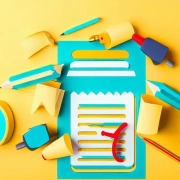 Crafting an outstanding essay goes beyond gathering insightful research and presenting compelling arguments. You see, grammar holds the power to convey your ideas in a way that captivates your readers and leaves them with a crystal-clear message. But here’s the catch: even seasoned writers can stumble upon common grammar mistakes that dampen the brilliance of their essays.
Crafting an outstanding essay goes beyond gathering insightful research and presenting compelling arguments. You see, grammar holds the power to convey your ideas in a way that captivates your readers and leaves them with a crystal-clear message. But here’s the catch: even seasoned writers can stumble upon common grammar mistakes that dampen the brilliance of their essays. So, you’ve poured your heart and soul into writing an exceptional essay, covering all the necessary points and presenting a coherent argument. But now comes the crucial final step: crafting a compelling essay conclusion that ties everything together and leaves a lasting impact on your readers. The conclusion is your last opportunity to drive home your main points, leave a memorable impression, and ensure your essay stands out from the rest.
So, you’ve poured your heart and soul into writing an exceptional essay, covering all the necessary points and presenting a coherent argument. But now comes the crucial final step: crafting a compelling essay conclusion that ties everything together and leaves a lasting impact on your readers. The conclusion is your last opportunity to drive home your main points, leave a memorable impression, and ensure your essay stands out from the rest. As the saying goes, “first impressions last,” and the same holds true for your essay. Your introduction sets the tone for the rest of your paper, and a compelling introduction can make your essay stand out from the rest.
As the saying goes, “first impressions last,” and the same holds true for your essay. Your introduction sets the tone for the rest of your paper, and a compelling introduction can make your essay stand out from the rest.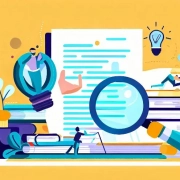 Researching for an essay is an essential process that every student needs to master in order to produce a well-written and well-supported paper. Research involves gathering information, analyzing sources, and incorporating that information into your essay to support your arguments.
Researching for an essay is an essential process that every student needs to master in order to produce a well-written and well-supported paper. Research involves gathering information, analyzing sources, and incorporating that information into your essay to support your arguments.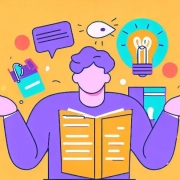
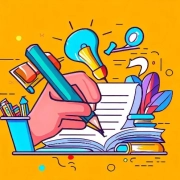 Are you struggling to write a good essay? You’re not alone. Many students find it challenging to write a quality essay that meets academic standards. But fear not! In this blog post, we’ll provide you with tips and resources on how to write a better essay. Our goal is to help you improve your essay writing skills and achieve academic success.
Are you struggling to write a good essay? You’re not alone. Many students find it challenging to write a quality essay that meets academic standards. But fear not! In this blog post, we’ll provide you with tips and resources on how to write a better essay. Our goal is to help you improve your essay writing skills and achieve academic success.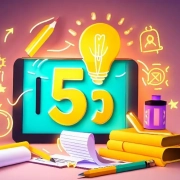 Are you struggling to write essays that get the grades you want? Do you feel like you spend hours planning and still don’t know where to start? Well, you’re not alone. Many students struggle with essay writing, but with the right techniques, you can improve your skills and get the grades you deserve. In this ultimate guide, we’ll show you how to plan an essay in just 5 minutes, giving you more time to focus on writing and refining your ideas.
Are you struggling to write essays that get the grades you want? Do you feel like you spend hours planning and still don’t know where to start? Well, you’re not alone. Many students struggle with essay writing, but with the right techniques, you can improve your skills and get the grades you deserve. In this ultimate guide, we’ll show you how to plan an essay in just 5 minutes, giving you more time to focus on writing and refining your ideas. Essay writing is an essential skill for students of all levels, whether they are in high school, college, or beyond. Essays are the backbone of academic writing and a vital part of many exams, scholarship applications, and job interviews. Writing a well-crafted essay requires critical thinking, research skills, and the ability to communicate ideas effectively.
Essay writing is an essential skill for students of all levels, whether they are in high school, college, or beyond. Essays are the backbone of academic writing and a vital part of many exams, scholarship applications, and job interviews. Writing a well-crafted essay requires critical thinking, research skills, and the ability to communicate ideas effectively.